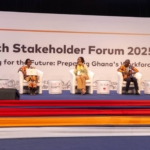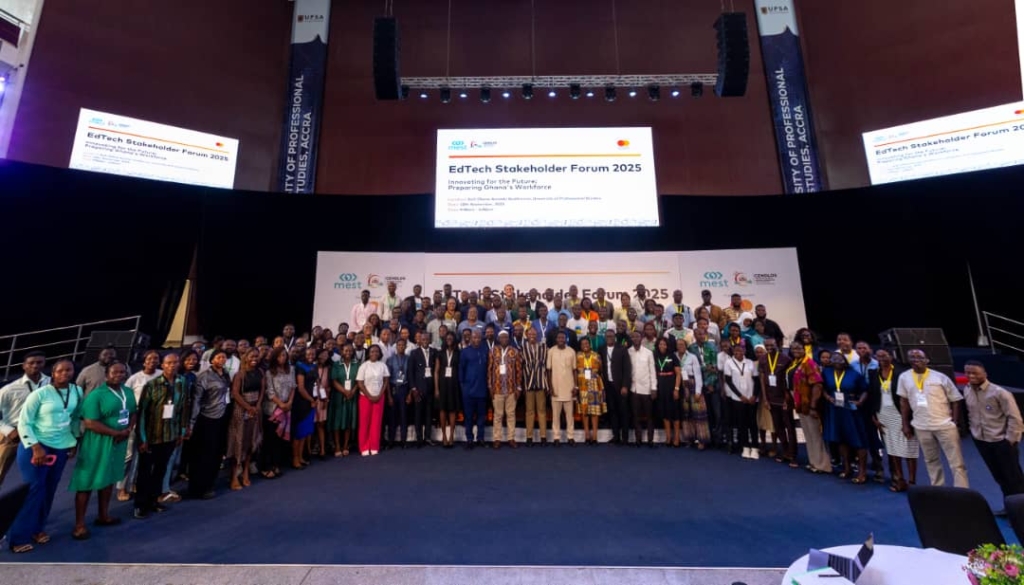
Ghana is stepping up efforts to expand digital learning by ensuring affordable internet access across the country, as the government positions education technology (EdTech) at the heart of its development agenda.
Speaking at the EduTech Stakeholder Forum 2025 in Accra, held under the theme “Innovating for the Future; Preparing Ghana’s Workforce”, Deputy Minister of Education Dr. Clement Apaak said equitable access to connectivity is vital to transforming the learning experience and preparing students for the demands of the global economy.
“Education technology is about more than just tools and platforms. It is about solving real problems, closing gaps in access, and raising the quality of teaching,” Dr. Apaak said. “For this, we seek to expand affordable connectivity and devices to underserved schools by working closely with telcos, the private sector and communities. We intend to train teachers at scale in digital pedagogy while investing in localized content to ensure that no child, whether a girl in a rural area, a learner with a disability, or a refugee, falls behind in the digital transformation journey.”

The Deputy Minister stressed that Ghana’s commitment to digital education is also a commitment to inclusivity, ensuring that all learners have the skills to thrive in an increasingly digital world.
Experts at the forum echoed similar views, arguing that EdTech provides Africa with a unique opportunity to leapfrog long standing barriers in education.
“You consider that Ghana and Africa in general were really behind in education for many reasons, including infrastructure and teacher preparation,” noted Olufemi Adewumi, Programmes Director at MEST Africa. “Technology has helped Africa move quicker than expected. GSM technology transformed communications, and EdTech has the same potential to bridge education gaps where there are not enough teachers.”
The EduTech Stakeholder Forum 2025 brought together policymakers, educators, private sector leaders, and development partners. The forum was organized by MEST Africa, and the Centre for Distance Learning and Open Schooling (CENDLOS), in partnership with the the Mastercard Foundation.